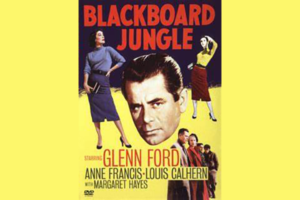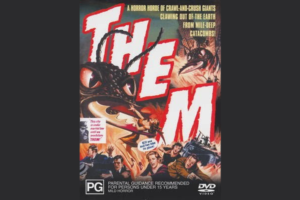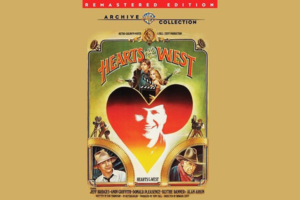
I’ve got the motive which is money and the body which is dead!


Today on Classic Movie Review, we are taking on In the Heat of the Night (1967). This excellent mystery drama deals with systemic racism. The cast for this film was blessed by the acting gods.
I want to give a big shout-out to David and Robert. They contacted me following the death of Sidney Poitier in January of 2022. I bumped this movie up the list as a small tribute to the great actor and his pivotal roles. I have added all your recommendations to the list, and there are so many good ones; I wish I could get to them faster. Please continue to write in and comment. It is greatly appreciated.
Today’s film won five Oscars; Best Picture, Best Actor in a Leading Role – Rod Steiger, Best Writing, Screenplay Based on Material from Another Medium – Stirling Silliphant, Best Sound – Samuel Goldwyn Sound Department, and Best Film Editing – Hal Ashby. It was also nominated for Best Director – Norman Jewison and Best Effects, Sound Effects – James Richard.
This movie has a very good 8.0 rating on iMDB.com[1]. On rottentomatoes.com, today’s film has an astonishing 95 percent on the Tomatometer and 92 percent audience approval[2]. New York Times film critic Bosley Crowther wrote in an August 3, 1967 review:
[Director] “Jewison has taken a hard, outspoken script prepared by Stirling Silliphant…and, with stinging performances contributed by Rod Steiger as the chief of police and Sidney Poitier as the detective, he has turned it into a film that has· the look and sound of actuality and the·pounding pulse of truth. The line of its fascination is not so much its melodramatic plot. It is not in the touch-and-go discovery by the detective of who it was who bumped off that prominent northern industrialist in town to start an integrated mill, or in the gantlet of perils of bodily injury from snarling red-necks that Mr. Poitier constantly runs. Actually, the mystery story is a rather routine and arbitrary one and it is brought to a hasty conclusion in a flurry of coincidences and explanations that leave one confused and unconvinced.
The fascination of it is in the crackling confrontations between the arrogant small town white policeman, with all his layers of ignorance and prejudice, and the sophisticated Negro detective with his steely armor of contempt and mistrust.
Fascinating, too, are the natures and details of other characters who swarm and sweat through a crisis in a believable Mississippi town – Warren Oates and Peter Whitney as raw cops, William Schallert and Larry Gates as powerful whites, Scott Wilson as a renegade red-neck and Quentin Dean as a slippery little slut.”[3]
Come on, man. It’s bad enough that you used negro, but I understand it was the times. But to call a 16-girl a slippery little slut. She may be redneck and slippery as hell, but she is a victim here too.
Actors – In the Heat of the Night (1967)
Returning
Sidney Poitier is fantastic as Detective Virgil Tibbs. Although this great actor was first covered in Band of Angels (1957), that is not one of his better movies. In the Heat of the Night (1967) stands, in my opinion, as one of his most influential roles, along with Lilies of the Field (1963), The Bedford Incident (1965), To Sir, With Love (1967), and Guess Who’s Coming to Dinner (1967).
Rod Steiger was at the top of his form as the racist Chief of Police Gillespie. This great actor was covered in one of his many significant roles in The Harder They Fall (1956). In the role of Gillespie, Steiger seemed to be modeled after the Mississippi racist sheriff Cecil Price, who was indicted for the murder of civil rights workers Chaney, Goodman, and Schwerner in 1964[4]. Much of this was fictionalized in Mississippi Burning (1988). Cecil Price was the sheriff of Neshoba County, located along the GMO line in central Mississippi. The scene of the murders was Philidelphia, Mississippi. Detective Tibbs is from Philadelphia, Pennsylvania. I don’t think this is by accident.
Lee Grant presented a strong character as Mrs. Colbert. Grant was first covered in Marooned (1969).
More minor roles include William Schallert as Mayor Schubert. Schallert was first covered in Shield for Murder (1954). Harry Dean Stanton was an uncredited police officer. Stanton was first covered in Red Dawn (1984). Peter Whitney played Courtney. Whitney was first covered in Three Strangers (1946).
New
The iconic grinning Warren Oates played the role of police officer Sam Wood. Oates was born in Kentucky in 1928. Oates graduated from high school in Louisville and served in the U.S. Marine Corps from 1946 to 1948. He attended the University of Louisville, where he became interested in theater. In 1954, Oates moved to New York to look for work as an actor.
Oates began to work in dramas, but his thick southern accent pushed him toward western. This great character actor could switch between goofs and crazed tough guys. His movies include Ride the High Country (1962), the troubled Major Dundee (1965), Return of the Seven (1966), In the Heat of the Night (1967), a very bloody The Wild Bunch (1969), Two-Lane Blacktop (1971), Badlands (1973), Dillenger (1973), Bring Me the Head of Alfredo Garcia (1974), Stripes (1981) as Sgt. Hulka, the great helicopter movie Blue Thunder (1983), and Tough Enough (1983). Oates passed away from a heart attack in his sleep at the very young age of 53 in 1982.
Anthony James played greasy spoon worker Ralph. James was born in 1942 in South Carolina. Both his parents were Greek immigrants. Standing over six and a half feet tall, with an angular pockmarked face, James was cast into a series of creepy roles. These roles began with In the Heat of the Night (1967), Vanishing Point (1971) as a slimy killer hitchhiker, The Culpepper Cattle Co. (1972), High Plains Drifter (1973), The Teacher (1974), Burnt Offerings (1976), and Ravagers (1979).
He was very popular on television from the late 1960s through the early 1990s. Later movies include Blue Thunder (1983), World Gone Wild (1987), The Naked Gun 2½: The Smell of Fear (1991), and Unforgiven (1992). James’ first and last movie both won the Oscar for Best Picture. He died in 2020.
Scott Wilson played Harvey Oberst, a murder suspect. I will not discuss him other than to say he was masterful as Hershel on “The Walking Dead” 2010-2018.
Story – In the Heat of the Night (1967)
This movie opens and hits like a ton of bricks. Legendary singer Ray Charles belts out “In the Heat of the Night,” a song composed by Quincy Jones and written by Marilyn and Alan Bergman.
A GMO (Gulf, Mobile, and Ohio[5]) train streams through the night. Two lines ran north across Mississippi, eventually hitting St. Louis and Chicago. The eastern track runs through Cornith, Mississippi, which I always suspected was the fictitious town of Sparta. Just for perspective, directly across the Tennessee line is Savannah, Tennessee, the home of Sheriff Buford Pusser, who was fictionalized in Walking Tall (1973), Walking Tall Part II (1975), Final Chapter: Walking Tall (1977), and Walking Tall (2004).
Just for the record, I have taken the tour of the Pusser house, and it was very similar to Peewee’s Alamo tour. This is the actual chair that Buford sat in.
The train passes the welcome sign for Sparta before it stops in the town. But you know you are not really welcome. You can figuratively feel the sweat as the train arrives. A well-dressed black man exits the train and enters the station waiting room.
In a filthy greasey spoon, cook Ralph (Anthony James) is killing flies with a rubber band. Police officer Sam Wood (Warren Oates) is having a soda and asking for a pie slice. The flawed Ralph has hidden the pie to harass the officer. Sam does not like Ralph and makes him call him officer Wood.
Wood returns to his car to patrol the sleepy town. He turns his contraband portable radio off and kills the patrol car’s lights as he stops in front of a lite house. A naked girl in the house can see Sam watching her, and she doesn’t mind. The girl is 16-year old Delores Purdy (Quentin Dean), but she looks thirty. Sam returns to his patrol and heads downtown.
Sam stops the patrol car as he sees a dead man lying in the street. Sam touches the dead man’s blood before calling into HQ.
Sheriff Gillespie (Rod Steiger), a photographer, and the local doctor begin processing the murder scene. Gillespie is in charge and has contempt for everyone else. The victim is Philip Colbert, a northerner that was going to build a factory in the town of Sparta. Sam confirms that there is no identification or witnesses to the crime.
Gillespie sends Sam to look for strangers and to check local hangouts. Sam eventually arrives at the train depot, where Virgil Tibbs (Sidney Poitier) waits to catch his train north. Sam begins with “on your feet, boy,” even though they are about the same age. Sam pulls a gun on Tibbs and searches him. When Sam finds Tibbs’ wallet full of money, he arrests him.
Tibbs is detained and brought to the police station, where Gillespie is more concerned with fixing the air conditioner than solving the murder. Gillespie sees Tibbs’ money and is sure he is guilty. Tibbs says that he was visiting his mother and is heading back home. Under interrogation, Tibbs reveals that he makes good money as a police officer in Philadelphia, Pennsylvania. Gillespie sees Tibbs’ badge. He calls in Sam and chews him out for not checking the suspect.
Gillespie calls Tibbs’ boss to verify his story. Courtney (Peter Whitney) is another inept officer at the station. The photographer brings in the pictures of the murdered man. Sam lets Tibbs see the pictures of the victim.
Tibbs is brought into Gillespie’s office to speak with his boss. His boss insists that he stay and help with the investigation. Both Tibbs and Gillespie try to avoid working with each other. Since Tibbs is a homicide expert, Gillespie finally asks him to help by examining the body.
Tibbs and Gillespie go to the undertakers, where the dead body is stored. It is clear immediately that Tibbs is an expert as he checks the body. He asks for the proper investigating equipment. The doctor and the mortician don’t want to help. But when Tibbs shows that rigor mortis has begun and that the time of death was earlier than they first projected and makes the chief look good, the two men fall in line.
Gillespie gets a call about another suspect and leaves Tibbs to finish the autopsy.
Now daylight, Harvey Oberst (Scott Wilson) runs from the police and a pack of bloodhounds. Harvey tries to make it across the river into Arkansas. However, Gillespie arrests Oberst on the bridge.
Sometime later, Tibbs arrives at the police station and is told by Courtney that Mrs. Colbert (Lee Grant) is waiting in the chief’s office and does not know about her husband’s death. Against advice, Tibbs goes to talk to Mrs. Colbert. She is extremely agitated, and then Tibbs gives her the news. Tibbs is very kind and professional. There is an important note in the conclusions about this scene.
Gillespie comes in with Oberst and thinks he is done with Tibbs. Tibbs asks to examine Oberst. He is sure that Oberst is not the killer because he is left-handed. Tibbs knows that blow came from a right-handed man. Oberst had the victim’s wallet, but he said he just picked it up from beside the body. Tibbs explains how Oberst could not be the killer. Mrs. Colbert is very impressed with Tibbs’s knowledge. Gillespie orders Tibbs to be taken to the train station. The chief orders Tibbs arrested for refusing to hand over the evidence. Oberst doesn’t want to share a cell with Tibbs and is shocked when he finds out Tibbs is in law enforcement. Oberst has an alibi. He says that he has been arrested before because Delores Purdy took her clothes off and that Sam Wood warned him to stay away from Delores.
Gillespie and Wood come and release Tibbs. Tibbs says Oberst is innocent and that Colbert was killed somewhere else and dropped on Main Street.
Mayor Schubert (William Schallert) calls Gillespie over and has Mrs. Colbert in his office. She demands that Tibbs be left on the case under the threat of not building the factory. Following the mayor’s advice, the chief puts Tibbs back on the case. Gillespie has to go to the train station and talk Tibbs into returning. Gillespie says the town needs the factory because there will be jobs for blacks and whites.
Gillespie gets Tibbs a car so he can continue to investigate the murder. Even the local blacks don’t know what to think of Tibbs.
Prominent white townsmen meet with the mayor and Gillespie and threaten Tibbs’s life.
Tibbs meets with Mrs. Colbert and finds out that Endicott (Larry Gates), who was at the meeting, was the main enemy of Mr. Colbert because he opposed an integrated factory and the general loss of his racially generated power.
Tibbs examines the murdered man’s car. He finds dried blood, mud, and a piece of fern-root that gives him an idea of where the killing occurred. Gillespie and Tibbs go to Endicott’s plantation, complete with a black lawn jockey. The two men are taken to Endicott’s greenhouse by his black butler.
Tibbs disarms Endicott by admiring his orchids. Endicott compares the need to care for orchids to the white man’s need to care for blacks. Endicott says that Colbert didn’t understand this need to care for a race. Endicott finally realizes that he is being questioned about the murder of Colbert. Endicott slaps Tibbs, and Tibbs slaps him back. Gillespie and the butler are paralyzed by the action, and Endicott says he could have had Tibbs shot in the past for touching him. After the tow lawmen leave, Endicott’s black butler shakes his head at Endicott in shame for the rich man.
Outside, in what I believe is the film’s pivotal moment, Tibbs says he wants to pull that fat cat Endicott down. Gillespie says, “Man, you’re just like the rest of us.” It hits Tibbs like a ton of bricks.
Gillespie meets with the mayor and is told the last police chief would have shot Tibbs for slapping Endicott.
Tibbs is driving on River Road when he is set upon by four rednecks in a car with a rebel flag tag. Gillespie drives out to rescue Tibbs, who he is sure is in trouble.
Tibbs runs into an abandon factory and is soon surrounded by the attackers. Tibbs uses a pipe to defend himself against the four men. Gillespie strolls in and stops the attack. Gillespie stands up to the racial taunts and punches one of the men.
That night, Tibbs gets in Wood’s patrol car and asks him to follow the route he drove the night of the murder. Ralph is at the diner robbing the jukebox for free songs. Seeing Wood coming, Ralph hides the pie. Before the two men can go inside, Gillespie arrives and is furious that Tibbs is still in town.
The three men go into the diner. Ralph refuses to serve Tibbs because of his race. The three men continue to follow Wood’s patrol route. Vigil notices that Wood changes the route, skipping the part where he sat in front of Delores’s house watching her show.
Later, Gillespie checks the bank and finds out that Wood made a large deposit the day after the murder.
Sometime in the morning, Tibbs comes in and says that he can prove the murderer was in Endicott’s greenhouse. Gillespie says he already has Wood arrested for the murder. Wood says he got the money from three years of gambling. Tibbs says he knows Wood changed the route so a black man would not see a naked white girl. Tibbs tells the chief he is making a mistake arresting Wood.
Lloyd Purdy (James Patterson) comes in dragging his sister Delores and demands to see the chief about Wood. Purdy says Delores is pregnant and Wood is the father. Tibbs enters the room to the chagrin of everyone involved. Delores said Wood comes by every night. One night he stopped at her house. He invited her to a cemetery, where they had sex. Purdy makes out that his sister has been shamed because a black man was in the room.
Tibbs goes to the cell and asks Oberst where someone can get an abortion in the town. Oberst sends word to his friend Packy (Matt Clark) to tell Tibbs the name of the black woman that provides abortions.
Lloyd and the rednecks are gathering to attack Tibbs again in another part of town.
Tibbs is at the factory site, and Gillespie finds him there. Tibbs says that the story from Delores made him realize that Endicott was not the killer, and in fact, Colbert was killed at the proposed factory site. He convinces Gillespie because Wood could not have driven two cars back to town.
Two cars load of rednecks are out looking for Tibbs. Tibbs and Gillespie bond over a bit of Wild Turkey, but Gillespie recoils at becoming friends with the only similar intellect in town. Packy arrives at the chief’s house and takes Tibbs to the abortionist. Tibbs tells Gillespie he is going where whitey ain’t allowed.
Tibbs goes alone to see Mama Caleba (Beah Richards) at a general store. He asks for the man’s name that is paying for Delores’ abortion. Mama says Tibbs is working for Mr. Charlie, slang for a white man. Tibbs says that the man that paid for the abortion had more money, and he killed Colbert. Tibbs says he won’t have her arrested if she gives the information. Mama says she doesn’t know the boy’s name, but Delores is coming by that night for the treatment. No sooner is that said than Delores enters the business. When she see Tibbs, she runs away.
Tibbs runs her down and catches her. A man in the shadows pulls a gun on Tibbs. It is Ralph. The two carloads of rednecks arrive and are about to kill Tibbs. Lloyd is holding a gun on the detective. Tibbs says that Delores has the abortion money from Ralph in her purse and that Wood was set up by the pair of lovers.
Lloyd finds the money and is about to shoot Ralph but is beaten to the draw. At the station, Ralph confesses to the murder of Colbert.
Gillespie takes Tibbs to the train. As a show of respect, he carries Tibbs’ bag and tells him to take care, you hear.
Conclusion – In the Heat of the Night (1967)
Due to racial threats against Sidney Poitier, the movie was filmed primarily in Sparta, Illinois.
On his YouTube channel, Aaron Hunter[6] points out the importance of the scene where Tibbs comforts Mrs. Colbert. This film was made twelve years after 14-year old Emmett Till was lynched for looking at a white woman in public.
World-Famous Short Summary – Just like The Fox and the Hound (1981)
Beware the moors.
[1] https://www.imdb.com/title/tt0061811/
[2] https://www.rottentomatoes.com/m/in_the_heat_of_the_night
[3] https://www.nytimes.com/1967/08/03/archives/screen-in-the-heat-of-the-night-a-racial-drama-poitier-plays.html
[4] Cecil Price – Wikipedia
[5] https://en.wikipedia.org/wiki/Gulf,_Mobile_and_Ohio_Railroad
[6] Aaron Hunter










Leave a Reply
Your email is safe with us.